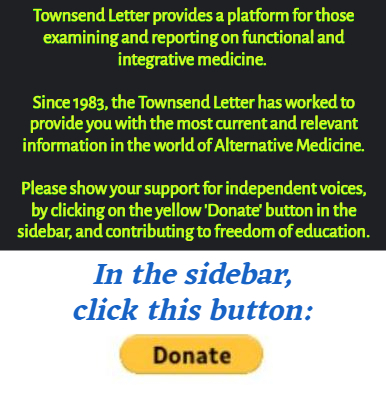An Inspiring Look at Cancer Recovery
Review by Dwight L. McKee, MD
I Used to Have Cancer: How I Found My Own Way Back to Health by James Templeton. Published by Square One Publishers.
Paperback; ISBN 978-0-7570-0478-0; 192 pages; $16.95 USD
Those with cancer will find in Templeton’s story a strong and sturdy foundation upon which they might now base their own potential reach towards recovery.
Starting in 1973, I have treated a number of people with cancer challenges: first as a medical student exploring nutritional therapies, then as a young holistic medical doctor exploring alternative cancer therapies, and ultimately as a medical oncologist (having done six years of hospital-based residency and fellowship training after twelve years in practice of holistic/integrative medicine). Early in this process, I had the insight that viewing cancer as a teacher, who tells us about how we’ve been living our lives, can be far more productive than battling it as an enemy.
In I Used to Have Cancer, author James Templeton—after telling the engaging story of his enlightening journey being diagnosed with an advanced stage of melanoma at the age of 32—has reached the conclusion that having cancer actually helped teach him how to live more fully and healthfully. As a general rule over the years, my advice to people facing significant cancer challenges has been to find therapies and practitioners that inspire confidence. By reading this inspired new book, those with cancer will find in Templeton’s story a strong and sturdy foundation upon which they might now base their own potential reach towards recovery. Another important lesson to glean from this book is the importance of trusting one’s intuition—something that has served James Templeton well over the years. He knew instinctively, for instance, that macrobiotics was to play a major role in his recovery, even before he had learned anything about it.
James Templeton’s cancer survival story is an important one, through which doctors and patients alike are poised to benefit. From chapter to chapter, he inspires a confidence in the reader that no oncologist or scientist can. James Templeton has succeeded in staying well despite the odds, which were strongly stacked against him. You can, too.







